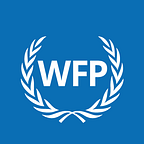Evidence with a gender lens: insights from two evaluation champions
What better way to celebrate Women’s Month than with evaluations that did an exceptional job of integrating gender dimensions in evaluation questions, approaches, and methods?
Two WFP country offices, Colombia and Türkiye, and the regional bureau in Nairobi, received the 2023 Evaluation Excellence Award for Gender Responsive Evaluation. In this feature evaluation managers Laura Leviller (Colombia) and Bercin Dogan (Türkiye) share what the award meant to them and how we can all strive towards more gender-responsive evidence.
How did you feel when you learnt about winning the Award?
BERCIN: 2023 unfortunately began on a challenging note with twin earthquakes striking the south of Turkey in February.
I had been feeling disheartened, thinking nothing positive would come my way this year, until I received an email from the Director of Evaluation and the Director of the Gender Equality Office, congratulating us on winning the WFP Evaluation Excellence Award for gender-responsive evaluation.
I was genuinely surprised, as I wasn’t even aware that we had been nominated for the award. From the planning phase to the dissemination phase, we approached our Decentralized Evaluation (DE) with utmost diligence. I lost count of how many times I referred to the DE Process Guidance to ensure that our work met the highest standards. In the end, witnessing our hard work pay off was a truly pleasing moment.
LAURA: I had woken up early that morning to finish some pending tasks and it was an absolute surprise to read the email about the news of the Gender Responsive Evaluation Excellence Award for this evaluation.
I was very happy, of course, because Colombia was the first office in the world to receive the Gender Equality Certification last November and this award added to that effort. My M&E team and other colleagues congratulated me. As evaluation manager it was really motivating.
What value do you see in introducing the Award series to WFP?
BERCIN: This initiative is undeniably uplifting, and I believe extending it to other areas would be highly beneficial. Doing so would not only foster a culture of continuous improvement but also enable the creation of best practices and the sharing of success stories. Such an expansion would contribute to a collaborative working environment where we can learn from others’ experiences. It could provide valuable insights for colleagues involved in managing evaluations, serving as a practical example of effective approaches and strategies.
LAURA: The Award series adds significant value to the importance of gender-responsive evaluations. It not only acknowledges and celebrates the country offices that prioritize gender equality but also fosters a culture of learning from this approach. This initiative encourages continuous improvement and innovation in our efforts.
What challenges were there in providing a gender perspective and how did you overcome them?
BERCIN: I believe that designing a gender-responsive intervention can indeed be more challenging than conducting gender-responsive evaluations, especially in contexts where achieving gender equality remains a significant challenge. Therefore, I would like to extend my congratulations to my programme colleagues and management for their efforts in designing our livelihood intervention through a gender lens.
In line with this commitment, we developed a gender-sensitive monitoring framework to systematically track our activities. We applied the same approach to the evaluation exercise as well. Right from the outset, the Terms of Reference emphasized the importance of addressing cross-cutting priorities, including gender, in a comprehensive manner.
We also ensured that our evaluation questions, data collection methods, and analysis techniques were all formulated to facilitate the assessment of our activities’ performance from a gender perspective. Our primary goal was to gain insights into what improvements are needed in our livelihood programming to promote women’s empowerment and enhance their participation in the labour market. This research focus and mindset were reflected in both the design and the outcomes of the evaluation process.
LAURA: Providing a gender perspective in this evaluation had challenges, including the lack of a theory of change or logical framework during the design of the project.
However, we overcame these challenges by having different sessions with our team, government staff and the evaluation firm. Collaboration with the Gender and Protection team during the full process was important to adequately adopt this approach.
What suggestions would you give other evaluation managers in their effort to promote gender in evaluations?
BERCIN: As part of the global WFP team, our collective mission is to eradicate hunger, which stands as our primary mandate. Nevertheless, I firmly believe that promoting women’s economic empowerment holds equal significance, as achieving zero hunger is possible with ensuring equal opportunities for women, men, girls, and boys.
I suggest my colleagues uphold this mindset when designing any form of evidence generation activities. Our findings and recommendations play a crucial role in enabling WFP to develop gender-responsive programmes that effectively address gender inequality.
Therefore, I would encourage them to consistently inquire, “How does this differ between men and women?”, particularly during the development of evaluation questions.
This approach ensures that our efforts are inclusive and tailored to meet the diverse needs of all individuals, advancing our shared goal of ending hunger and fostering gender equality.
LAURA: I would advise other evaluation managers to prioritize gender mainstreaming from the Terms of Reference to the final report.
This includes integrating gender analysis into project and evaluation design and ensuring diverse participation in evaluation teams and the reference group.
Furthermore, a comprehensive gender-responsive monitoring system will provide reliable monitoring data, as valuable inputs for the evaluation process.
